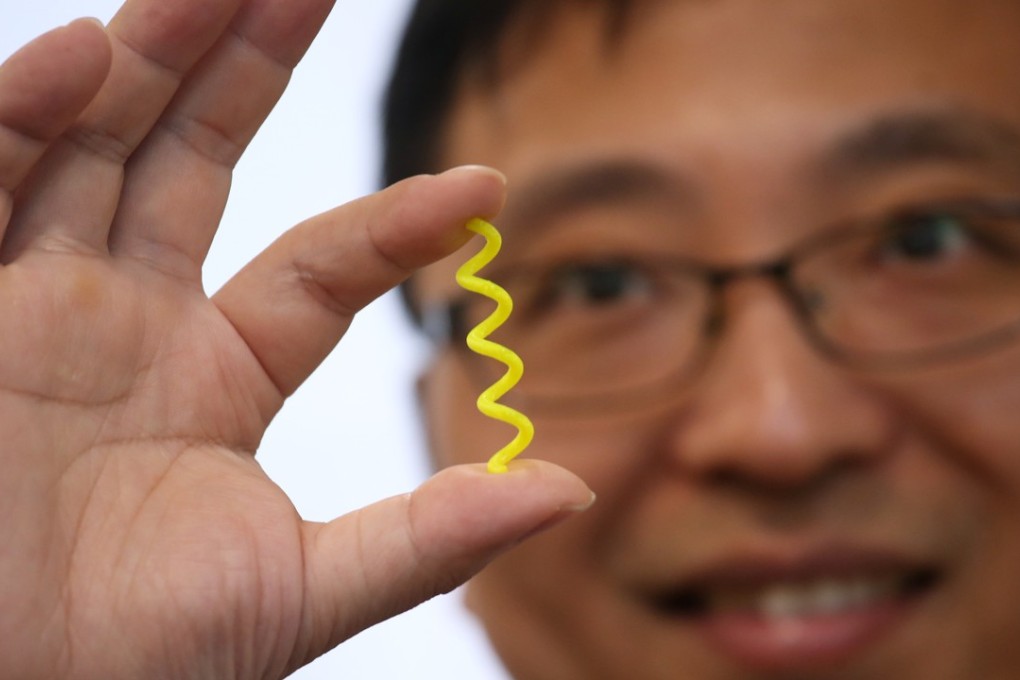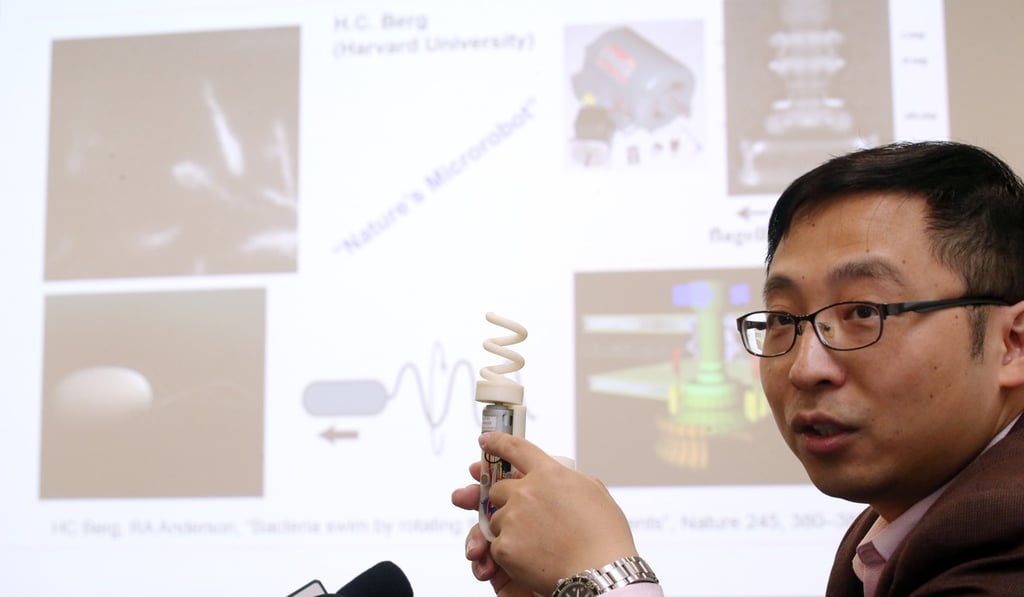Could tiny robots made from algae be the next big break in the fight against cancer?
CUHK researchers stress more work ahead before clinical trials can be done

A common algae has been used to make biodegradable microrobots that could detect diseases in the human body as well as attack cancer cells, Chinese University researchers announced on Tuesday.
The microrobots were able to release substances that attacked cancer cells during its degradation process. The devices were created from spirulina algae, which are widely used as dietary supplements.
“It is pioneering work to develop a biodegradable microrobot as this was rarely seen in the past,” said lead researcher Zhang Li, associate professor of the university’s department of mechanical and automation engineering.

The team’s findings were published in the American academic journal Science Robotics.